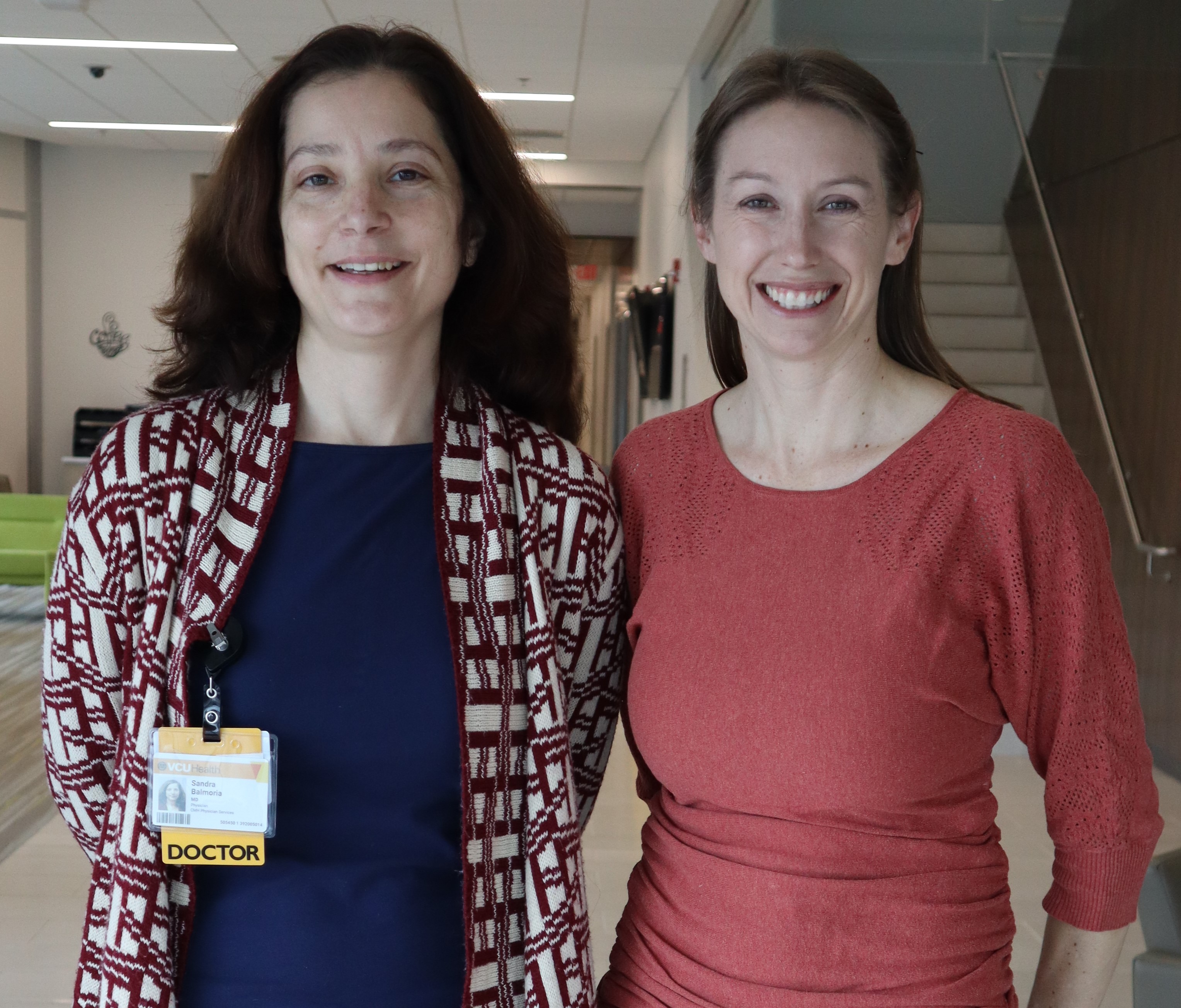
Sandra Balmoria, M’12, H’15 (left), and Lori Landes, MD-PHD’13, are expanding their alma mater’s ability to train physicians through the VCU-Community Memorial Hospital Family Medicine Residency launching in 2023. Located in South Hill, Virginia, near the North Carolina border, the program will build a pipeline of physicians in an area that has struggled to recruit family medicine and primary care physicians.
Lori Landes, MD-PHD’13 (HGEN), believes firsthand experiences are crucial to introducing medical students and residents to the nuances and challenges of practicing medicine in remote areas — and to ensuring long-term access to care to those populations. As associate program director for the developing VCU-Community Memorial Hospital Family Medicine Residency, she wants to create partnerships with communities that increase access to care, improve outcomes and decrease health disparities.
Landes first turned her attention to medical education after completing her residency at the University of Arizona, where she focused on underserved patients and rural medicine. Her placements spanned the state, ranging from urban academic centers to small, remote areas to the Indian Health Service.
By the end of her residency, she realized she could implement what she learned in her own practice, or have a broader impact by training the next generation of physicians in the same model. She joined the teaching health center movement, which focuses on placing residents directly in communities.
“If we want to address the health care needs of the nation, our residents need to be out in the communities,” she says. “By basing their education in the community, we will focus on primary care and all of the wraparound services that can change somebody’s life.”
Landes is preparing to launch a new family medicine residency in South Hill, Virginia, near the North Carolina border, in July 2023. She says the program will train residents in rural medicine and build a pipeline of physicians in an area that has struggled to recruit family medicine and primary care physicians.
This workforce development begins with the program’s faculty. Landes says many programs that incentivize rural medicine — such as loan repayment programs — are often short-term and can lead to high physician turnover. Building a residency program, though, means that high-caliber physicians come to the area to teach, drawing a regular cohort of residents, and together they provide stability and continuity of care for years to come.
Sandra Balmoria, M’12, H’15, recently left her practice on the Eastern Shore and will soon join the South Hill residency faculty. She grew up in a small farming community in Ohio and wanted to return to her rural roots after finishing her residency in Fairfax, Virginia. As a preceptor on the shore, Balmoria says she had a “great panel of patients with incredibly interesting medical experiences” from whom her students could learn.
“What is it like living with HIV in a really rural community? Or what is it like having multiple sclerosis or some other condition that requires a lot of specialty care? Or what is it like having a child with a serious medical condition and being over 100 miles from a children’s hospital?”
Balmoria also sees the new residency program as an opportunity to introduce physicians to the benefits of small-town life. She’s particularly excited about South Hill’s active 4H clubs, restaurants, 24-hour gyms, daycares, and schools, and an enthusiastic community that’s excited about the program’s arrival.
“It has the things a recent medical school graduate would need to feel at home,” she says. “Everyone has been so glad to have us here, and they want to help. That was exactly what I needed to hear to know that residents will want to come here, and they’ll be happy.”